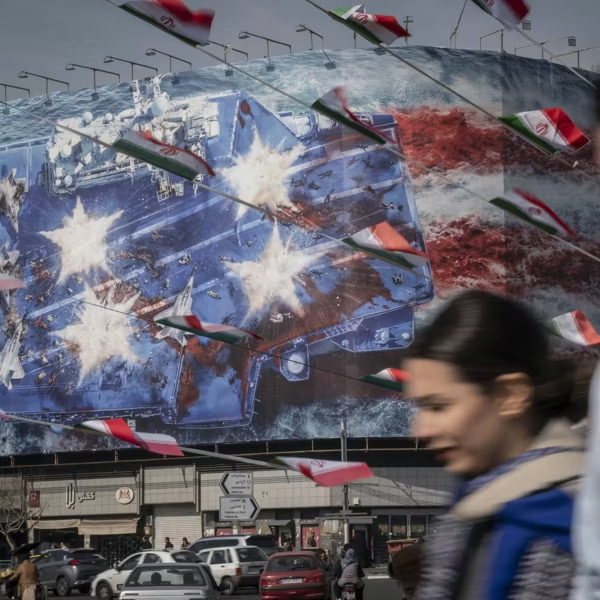While U.S. President Donald Trump used his speech at the United Nations General Assembly on Tuesday to denigrate migrants and global cooperation, his Iranian counterpart, Hassan Rouhani, declared that "confronting multilateralism is not a sign of strength, rather it is a symptom of a weakness of intellect."
"It is unfortunate that we are witnessing rulers in the world ride public sentiments and gain popular support through the fomenting of extremist nationalism and racism and through xenophobic tendencies resembling a Nazi disposition."
--Iranian President Hassan Rouhani
Although Rouhani did not name Trump, there was little doubt that he was referring to the American president when he said, "It is unfortunate that we are witnessing rulers in the world ride public sentiments and gain popular support through the fomenting of extremist nationalism and racism and through xenophobic tendencies resembling a Nazi disposition, as well as through the trampling of global rules and undermining international institutions."
In recent months, the Trump administration has threatened to impose sanctions on International Criminal Court (ICC) officials who pursue probes into U.S. or Israeli war crimes; ditched the U.N. Human Rights Council (HRC) over what U.S. Ambassador to U.N. Nikki Haley called "disproportionate focus and unending hostility toward Israel"; and violated the 2015 Iran nuclear deal, despite warnings against doing so from the international community.
Rouhani's comments come amid heightened tensions between his nation and the United States, as Trump targets Iran with economic sanctions, and officials in both governments point fingers in the wake of a weekend terror attack that left more than two dozen Iranians dead. While Rouhani blamed U.S.-backed Gulf states for the attack, Haley dismissed his accusation, telling CNN that the Iranian president should "look in the mirror" and "look at his own home base."
During his address to the world body on Tuesday, Trump rejected the diplomatic engagement that defines the U.N. "We reject globalism and embrace the doctrine of patriotism," he said. "We will never surrender America's sovereignty to an unelected, unaccountable, global bureaucracy."
Defending his administration's attacks on or withdrawals from key U.N. groups--including the ICC, HRC, U.N. Educational, Scientific, and Cultural Organization (UNESCO), U.N. Reliefs and Works Agency, and Global Compact on Migration--Trump asserted, "The U.S. will always choose independence and cooperation over global governance, control, and domination."
"The U.S. should be building up, not tearing down, international mechanisms that hold governments accountable for their abuses."
--Margaret Huang, Amnesty International
Such moves have been widely decried by human rights advocates within and beyond the United States, as well as major U.S. allies.
Noting that under Trump, the federal government has pursued "xenophobic policies that defy international law"--such as the zero tolerance policy under which hundreds of migrant children remain forcibly separated from their parents--Maya Finoh of the ACLU's Human Rights Program wrote Monday that "the Trump administration is pitting the United States against the very system of multilateralism that our country worked so hard to create in the years after World War II."
"This system was designed to benefit the entire world--including the U.S.--by promoting peace, security, and human rights while deterring chaos and violence. That's why undermining it is harmful to everyone, including Americans," Finoh continued. "No one should stand by idly in the face of Trump's assault on human rights and the international institutions in place to defend them."
Responding to Trump's remarks to the U.N. on Tuesday, Amnesty International USA executive director Margaret Huang charged, "The U.S. should be building up, not tearing down, international mechanisms that hold governments accountable for their abuses."
"The scale and gravity of human rights concerns around the world must be addressed," she added. "That is why the multilateral institutions, like the ICC and the Human Rights Council, are more important now than ever before."




